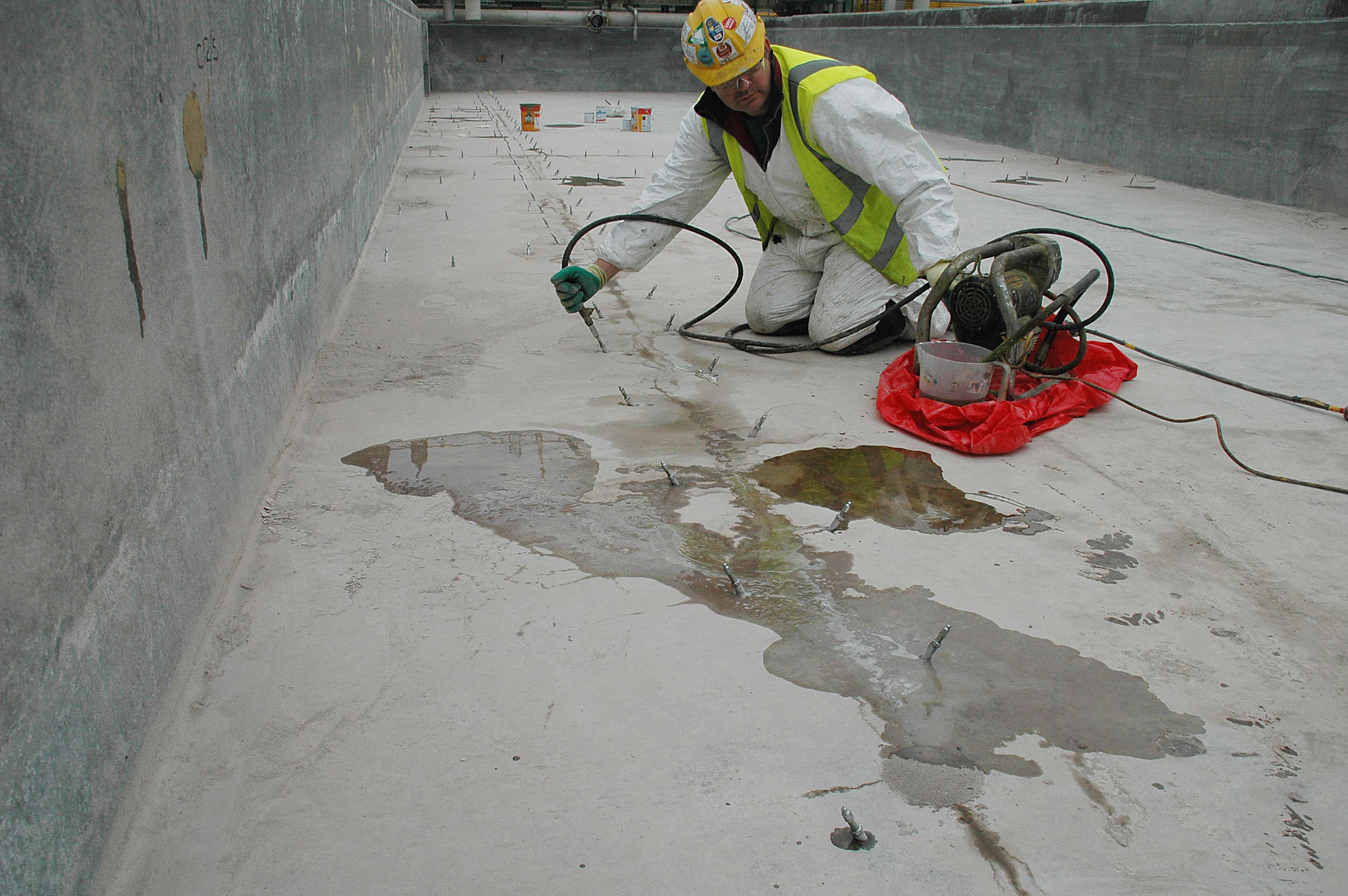
In modern construction, several types of injections are used to protect buildings from water and other influences. One of the most widely used today is the polyurethane injection system.
• Can react in humid environment.
• Adheres well to moist surface.
• Results are obtained in a short time.
• Capable of operating at pressures of 20-40 bar.
• Application temperature is between +5 Co and +40 Co.
• Protects concrete from negative water pressure.
• Has the ability to grow 20-25 times in a short time.
• Hardening is the fastest of the substances used in injections.
• Elastic, moves with concrete.
Why Polyurethane Injection?
Antimony insulation or various mixtures used for non-interfering water leaks coming in the negative direction hide the leak and cause the building to collapse and corrode more quickly. Retaining water by applying antimony insulation allows it to remain inside the concrete, which weakens the iron compounds inside the concrete and causes it to break down. By applying polyurethane injection, the water is replaced with polyurethane up to the capillary cracks and the contact of the concrete with water is minimized. This helps the concrete to get rid of the wet environment and prolong its life.
FIELDS OF APPLICATION:
• Prevention of negative water leaks at all construction sites
• In tunnels and underground passages
• In concrete reservoirs
• Injection of waste water tanks
• In the joints of cold joints of buildings
• In basements and underground warehouses